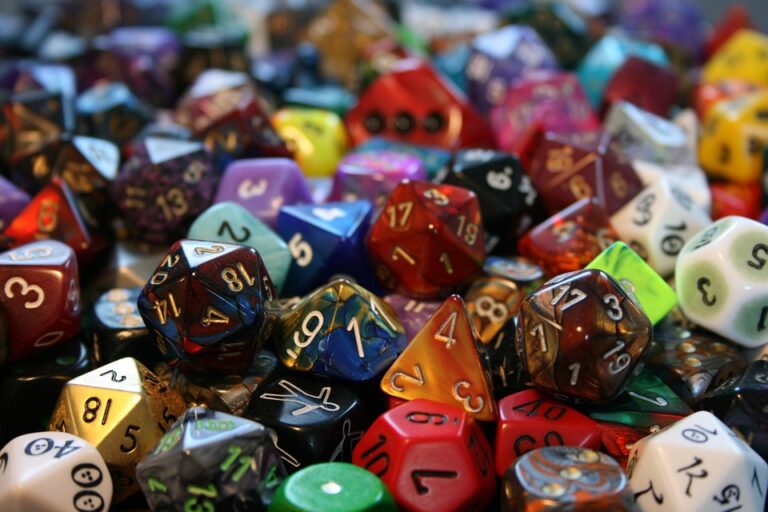The Psychology of Role-Playing: Why We Love to Escape Into Fantasy
Role-playing games (RPGs) have surged in popularity over the past few decades, captivating audiences from all walks of life. Whether based on intricate fantasy worlds or recognizable pop culture references, these interactive experiences allow players to step beyond their reality and into a realm of imagination. But why do we find such joy in role-playing? This article delves into the psychology behind role-playing games, exploring the reasons behind our love for escaping into fantasy.
Understanding Role-Playing Games
At their core, role-playing games allow participants to assume the roles of fictional characters, navigating stories and scenarios limited only by their imagination. Players often engage in collaborative storytelling, striving to achieve common goals while building enriching narratives. The RPG world, therefore, serves as a therapeutic escape from daily stresses, offering unique benefits both psychologically and socially.
The Therapeutic Benefits of Role-Playing
-
Escape from Reality: One reason we love to engage in role-playing games is the relief they provide from everyday life. According to a recent survey conducted by the Entertainment Software Association, 75% of individuals play video games to relax and relieve stress. This escape mechanism allows players to momentarily forget their troubles, immersing themselves in alternative worlds.
-
The Freedom to Explore Identity: Role-playing games also offer a platform for individuals to explore different facets of their identity. By stepping into another character’s shoes, players can experiment with attributes, behaviors, and experiences otherwise beyond their reach. This exploration can facilitate personal growth and even foster greater empathy by allowing players to experience the perspective of individuals outside their usual scope.
- Community and Connection: RPGs often bring people together, creating a sense of camaraderie among players. In fact, a study published in the Journal of Gaming Behavior reveals that 67% of players report feeling a sense of community while engaged in RPGs. This engagement facilitates social interactions that can mitigate feelings of loneliness and boost overall psychological well-being.
Role-Playing as a Form of Storytelling
Imagination and Creativity
Role-playing is unique in its focus on collaborative storytelling. Players actively shape narratives, presenting opportunities for creativity to flourish. According to industry analysis, a staggering 90% of gamers attribute their enjoyment of RPGs to the storytelling aspect, allowing them to intertwine personal and group narratives.
An Analogy for Understanding
Consider the relationship between a theatrical play and an RPG. In a play, actors portray characters with predefined scripts. In contrast, RPG players co-create the narrative regardless of predetermined outcomes, allowing spontaneous creativity and deeper engagement. This analogy highlights the empowering nature of RPGs; players are not merely passive participants but active architects of their experience.
Immersion and Its Psychological Impacts
Creating Personal Meaning
Another reason we adore role-playing games lies in their capacity for immersion, facilitating profound emotional connections. According to a report from the International Journal of Interactive Design and Manufacturing, 88% of RPG players feel significantly more invested in the fictional worlds they navigate. This immersion enables users to forge personal meaning from experiences—be it through character development or narrative arcs—providing valuable coping mechanisms during challenging times.
The Engagement of the Player
RPGs employ various mechanisms to maintain player engagement, such as complex decision-making and character progression. In an ever-changing landscape of challenges and quests, players constantly evolve their characters, fostering a sense of accomplishment and satisfaction.
Conclusion
Role-playing games provide a multifaceted experience that resonates deeply with the human psyche. They offer not just an escape but also a canvas for creativity and community. From relieving stress to exploring identity, RPGs have become an essential outlet in modern entertainment. As their popularity continues to grow, understanding their psychological impact becomes ever more crucial.
For more insights into the world of gaming and its psychological effects, explore our articles on The Mental Health Benefits of Gaming and How Video Games Influence Creativity. Additionally, check out studies from the American Psychological Association on The Effects of Video Games on Well-Being.
Suggested Images
- Image of a group playing a tabletop RPG: (Alt Text: Group enjoying role-playing games)
- Image portraying a character sheet from a popular RPG: (Alt Text: Role-playing games character sheet)
In summary, the psychology behind our love for role-playing games reveals a complex blend of escape, creativity, connection, and meaning-making that resonates deeply with individuals, offering insights into the vital role of fantasy in our lives.


